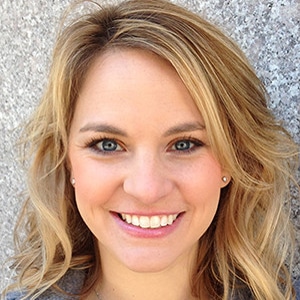Decreasing Childhood Anxiety with Play Therapy and CBT
 Andrea Driggs McLeod
Andrea Driggs McLeod
Workshop Description
The goal of this workshop is to provide participants with information about how to successfully implement play therapy and playful Cognitive Behavioral Therapy approaches with children experiencing anxiety. Play Therapy is relationship-based and provides children with 1) the opportunity to self-direct; 2) the experience of control and mastery; and 3) the experience of a permissive environment and relationship in which they can access natural healing mechanisms such as post-trauma play. Children who suffer from anxiety can benefit from opportunities to work with clinicians who are able to gain an understanding of the child’s perspective, experiences, and triggers. Clinicians who learn to utilize effective play therapy and playful CBT skills, are better able to both allow and encourage children to express and release affect, explore alternative coping skills to gain understanding and become more regulated, and begin to manage thoughts and emotions that can feel overwhelming or frightening. This workshop will serve to develop and enhance participants’ skills to integrate and implement an integrated approach highlighting play therapy and CBT in their settings and amplify children’s exploration of the material they externalize, within a safe, predictable environment. This program will teach participants the benefits of adding play therapy to their CBT services and vice versa, exploring how a fully integrated approach provides flexibility and playfulness while giving children useful strategies for coping with difficult thoughts, emotions, or behaviors.
Program Schedule
The schedule will consist of didactic presentations, experiential work, and processing clinical case material.
| Day One | |
| 9:00 – 9:30 | Introductions and needs assessment: Participant’s “wish list” |
| 9:30 - 10:45 | Experiential exercises that highlight play therapy basic principles |
| 10:45 - 11:00 | Break |
| 11:00 - 12:00 | Didactic presentation of basic play therapy and CBT skills, the relevance of phenomenological experiences, and basic principles to implementing a successful CBT-based play therapy practice. |
| 12:00 - 1:00 | LUNCH |
| 1:00 - 2:30 | Discussion of physical reactions to anxiety and ways to identify triggers to stress. |
| 2:30 - 2:45 | BREAK |
| 2:45 - 4:30 | Experiential exercises, group work to develop responses to clinical case discussions |
| Day Two | |
| 9:00 – 9:30 | Clinical case discussions to explore considerations of appropriate populations for this intervention |
| 9:30 - 10:45 | Experiential work with emphasis on integrating play therapy skills and goals to CBT techniques and vice versa |
| 10:45 -11:00 | Break |
| 11:00 -12:00 | Didactic presentation highlighting the concepts of negative thought patterns, core beliefs, and cognitive distortions in child friendly and playful ways |
| 12:00 - 1:00 | LUNCH |
| 1:00 - 2:30 | Clinical case presentation exploring the use of expressive therapies with older adolescents and teens experiencing anxiety |
| 2:30 - 2:45 | BREAK |
| 2:45 - 4:30 | Clinical case discussion and termination exercise |
Course Objectives
By the end of the course participants will be able to:
❖List three play therapy strategies for reducing anxiety in school-age children
❖Incorporate a minimum of two CBT principles into play therapy sessions
❖Demonstrate an understanding of three specific benefits of integrating play therapy and CBT principles
❖Define play therapy and list two basic principles
❖Define CBT and list two basic principles
❖Give two examples of how play therapy and CBT can be viewed as compatible
❖List two counterindications of using an integrated approach of play therapy and CBT
General Course Information
This course is limited to 15 participants and is designed to facilitate experiential work, group discussion, and processing of clinical material. Participants will have ample opportunity to discuss their specific needs and clinical questions. Participant feedback will be sought out throughout the day.
Clinical case discussions will adhere to HIPPA regulations regarding client confidentiality.
This event is co-sponsored by Starbright Training Institute and the Institute for Continuing Education. Starbright Training Institute is approved by the Association for Play Therapy to offer continuing education specific to play therapy (APT Provider No. 96-029).
Additional CE units, not specific to play therapy, will be provided through the Commonwealth Educational Seminars (www.commonwealtheducation.com). There is an additional $30 fee for social work, counseling, MFT, and psychology CEs and checks are made out to Starbright Training Institute (or cash paid at training, no credit cards).
Myriam Goldin, LCSW; RPT-S, is Director of Starbright Training Institute. Phone: 703-980-2886. Email: starbright.inst@outlook.com Web Page: starbrighttraininginstitute.com
Course Instructor Contact Information
Name: Andrea McLeod LCSW, RPT-S. Andrea is a Certified Child Centered Play Therapist and a participant in a research study utilizing TFCBTand child-centered play therapy. She currently works at Gil Institute.
Website: www.gilinstitute.com
Email: AMCLEOD@gilinstitute.com
Phone: 513-312-8609